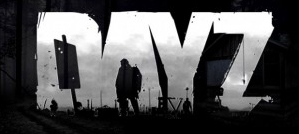Night has fallen, and crickets croak their ambient song. I’m slowly bleeding from a wound to my chest and hunger twists knots in my stomach, but I’m out of food and medicine. I have maybe five round of ammunition left in my pistol – not nearly enough to hunt. I dropped my rifle a ways back because it was slowing me down. I emerge into a dirt-road, and I shield my eyes from the sudden bright light of a flare, spluttering its dying breaths in the centre of the path. A corpse is slumped beside it, clutching a revolver and fallen zombies litter the ground around me. Whoever this fellow was, he made a valiant last stand. I move towards him, musing that his gear will hopefully serve me better than it did him, when a gunshot silences the insects. A pair of men emerges from the bushes, AK-47s trained on me. A trap! One of them shouts at me to drop my pistol, and hand him my backpack, and I’m weighing up my chances; wondering if I can take one of them with me before they gun me down. After all: I’ve got nothing left to lose.
DayZ is a modification for First/Third-Person-Shooter ARMA 2. At its most basic level, it is a game about finding food, and slaying zombies. However, anyone that has played it for an extended period of time will tell you that it is so very much more than that. Video game review-site Kotaku have proclaimed it to be the greatest zombie game ever to be made, and the most interesting computer-based game of 2012, and PC Gamer called it one of the most important things to happen to computer gaming in 2012.
The same review-site proclaims it “gaming’s best story-machine,” and I think that’s fitting. DayZ is one of those rare video games which can create genuinely memorable moments; be they cowering in a barn whilst a sniper in camouflage takes pot-shots at you from a hill on the other side of the farm, or fleeing with a friend, a column of fifty howling, snarling undead trailing your path. The concept of permanent death: of losing everything you’ve worked for, the oppressive, post-soviet setting and the constant threat of the ghouls that stalk the continent creates an atmosphere.
Atmosphere begets a solid platform for players to make their own stories, and the open-world mechanic allows unique communities to thrive. I’ve met bandits that treat the game like Call of Duty or Battlefield: shooting everything in sight (and dying fairly quickly), and at the other end of the spectrum, I’ve been saved from certain, grizzly death by kindhearted players willing to equip and offer advice to newbies. One of the most powerful aspects of DayZ is the way that it centres on its community. It doesn’t force your hand: if you wish to murder and steal, then that’s your decision, just as you are completely free to roam the land with a buddy, hunting animals for food and trading with others.
It looks set to grow, too. DayZ’s creator, Dean Hall has been hired by Bohemia Interactive, the group behind its parent game, ARMA 2, and the company has praised his work, hinting that a stand-alone retail version of DayZ could be in the works. Hall has vowed not to give up on his project, however, and is currently working on incorporating canine companions for players.
It has also inspired several of what some people claim are knock-off games, which attempt to grasp at some of the fame surrounding it, and the community has generated a vast quantity of related data: from anthologies detailing some of their most interesting stories, to their own mods and bug-fixes. DayZ is, without a doubt, one of the most industry-defining games in recent history, and I would go so far as to call it one of the greatest video game modifications ever made.

